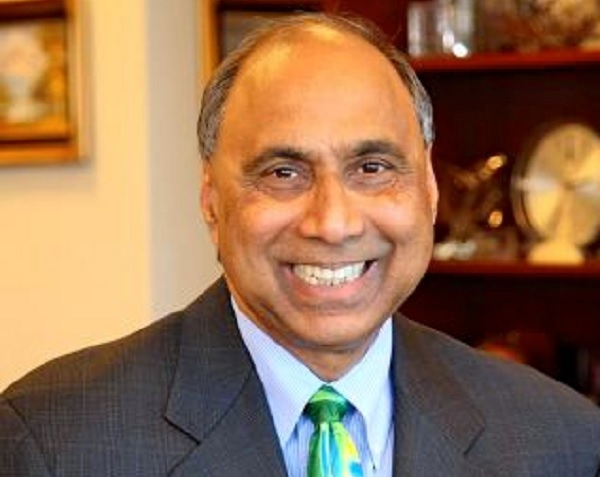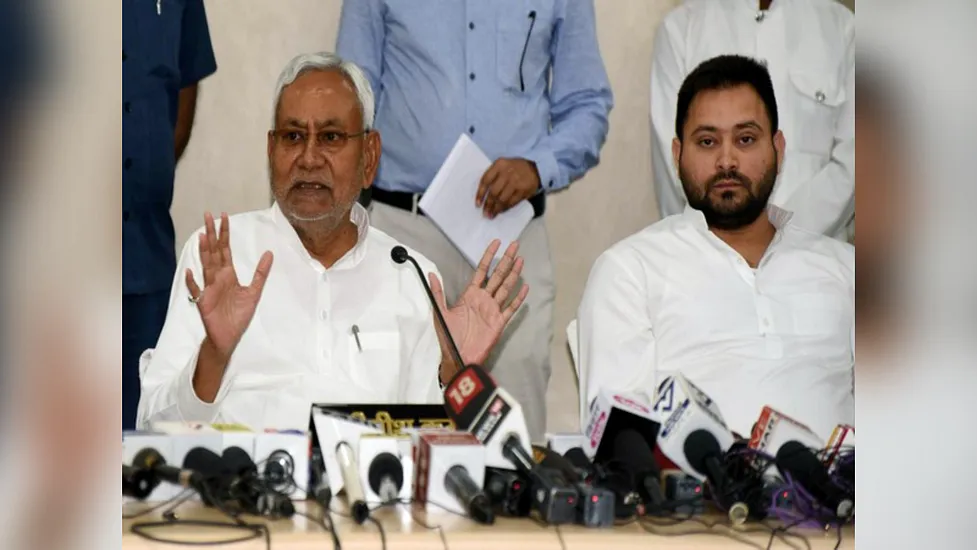
by Editor | Sep 1, 2024 | Opinion, Opinions
FRANK ISLAM
Observed on the first Monday in September, Labor Day is an annual celebration of the social and economic achievements of American workers. The holiday is rooted in the late nineteenth century, when labor activists pushed for a federal holiday to recognize the many contributions workers have made to America’s strength, prosperity, and well-being.
U.S. Department of Labor, History of Labor Day
Labor Day is a day to celebrate all workers and all forms and levels of work. On September 2, this Labor Day in 2024, because of the Olympics and the positive spirit displayed in France, there is an additional reason to celebrate in America.
This reason is not simply the medals that were won there, but also the contributions from athletes and those from all walks of life who joined and worked together to make these Olympics such an incredible success.
The Olympic Spirit
Before the Olympics began, this success seemed improbable and potentially impossible. France as a country was becoming increasingly divided politically, economically, and socially. The majority of the French people said they were opposed to the Olympic Games being sponsored in Paris, France and many would not watch them.
Then, the Olympics began on July 26 with a phenomenal Opening Ceremony, which included athletes from around the world floating in boats down the river Seine. lighting of the Olympic flame, sending it up in a cauldron to fly in the skies above Paris, and placing replicas of the interlaced Olympic rings on the Eiffel Tower.
During his Opening Ceremony comments, Tony Estanguet, a three-time French Olympic champion and President of Paris 2024:
Said to the people watching, “The Games have reminded us that in France, even if we have a hard time agreeing on things, in the moments that count, we can come together and combine all our strengths for a single purpose.”
Thanked those who made the Olympics possible including the volunteers to whom he said, “Thank you to the 45,000 volunteers: you have come here from 155 different countries, from all walks of life: teachers, retired people, nurses, students…and your enthusiasm will light up these games.”
Said to the athletes, “For the next sixteen days, you will be the best version of humanity. You’ll remind us that the emotions of sport form a universal language we all share.”
Estanguet was accurate. For those next sixteen days, the athletes kept us spellbound, not only with their accomplishments but with their kindness shown to each other, whether winning or losing.
That demonstration of athletic heroism and generosity led Estanguet, in his comments at the Closing Ceremony on August 11, to say, “We knew you would be brilliant, but you were magic. You made us happy. You made us feel alive. The world needed these emotions so much.”
In his speech at the closing ceremony, International Olympic Committee President Thomas Bach, a former Olympian himself, built on Estanguet’s remarks, saying to his fellow Olympians and to the viewers of the Olympics:
Your performances were amazing. You competed fiercely against each other. Every contest on the edge of perfection. Every performance sparking excitement around the world. You showed us what greatness we humans are capable of.
This inspired all of us and billions of people around the globe. Thank you for making us dream. Thank you for making us believe in a better world for everyone.
We know that the Olympic Games cannot create peace. But the Olympic Games can create a culture of peace that inspires the world. This is why I call on everyone who shares this Olympic spirit: let us live this culture of peace every single day.
The American Spirit
The Olympic spirit, and the work done by the American athletes there, provided the fuel for reigniting the American spirit.
In part, that reigniting was due to the members of the American Olympic team winning the most medals — a total of 126 gold, silver, and bronze medals. In larger part, however, it was due to learning the stories of the medal winners and the hard work they, and others, had put in to excel in their sport.
Gold medal winners such as Olympian swimmer Katie Ledecky and gymnast Simone Biles and professional basketball players LeBron James and Steph Curry were well-known. Less well-known were gold medal winners such as: Sydney McLaughlin-Levrone; a four time gold medal winner and world record-holding 400 meter hurdler, Ryan Crouser, three time gold medal-winning shot putter; and Noah Lyles, 100 meter gold medalist, and thus the unofficial “fastest man in the world.” Little known were other medal winners such as: “quirky” Stephen Nedoroscik, whose performance on the pommel horse enabled the USA men’s gymnastics team to win bronze, Jasmine Moore, bronze medal winner in the women’s long jump and triple jump, and Kristen Faulkner, gold medal winner in the women’s cycling road race and the women’s track cycling pursuit team.
It’s not just the medal-winning Americans who were inspiring at the Olympics. It was all the 594 Olympic team members who, through their hard work and dedication, committed themselves to excelling. After the Olympics, Brad Stulberg, author of The Practice of Groundedness, wrote a New York Times guest essay titled “What the Olympics can Teach Us About Excellence,” in which he states:
Excellence is not perfection or winning at all costs. It is a deeply satisfying process of becoming the best performer — and person — you can be. You pursue goals that challenge you, put forth an honest effort, endure highs, lows and everything in between, and gain respect for yourself and others. This sort of excellence isn’t just for world-class athletes; it is for all of us. We can certainly find it in sports, but also in the creative arts, medicine, teaching, coaching, science, and more.
At the end of his piece, Stulberg observes:
At a time of disconnect and alienation, the pursuit of excellence offers a powerful and necessary path to intimacy with ourselves, our work, and our communities. It is, at root, what it means to be the best humans we can be.
Steve Kerr, coach of the USA men’s Olympic basketball team, has a first-hand and front row understanding of what that construction of personal excellence and coming together means for Americans and the American spirit
Speaking at the Democratic National Convention, Kerr said:
And when we won, the American flag raised to the rafters, the national anthem playing, gold medals draped around the necks of our players, it was the proudest moment of my life.
During his speech Kerr took his commentary well beyond the Olympics, stating:
Americans know the greatness of this nation doesn’t come from any one of us, but from each of us doing our part to build a more perfect union.
The American Worker and Labor Day
Stulberg and Kerr are correct. There are American workers everywhere across this great nation and around the world who are committed to being the best they can be, and to working together with others to get their work done in a way that makes a difference.
Those workers are committed to excellence in all lines of work. They are on the playing field and the battlefield; on the shop floor and in the office, in the classroom and the operating room, in small businesses and big businesses; in union companies and non-union companies; in the private sector and the public sector.
Those workers are in jobs that are full-time and part-time, and in jobs that are paid and unpaid. In today’s America, many of these workers work multiple jobs, and many of them are self-employed.
To borrow a sentence from Michelle Obama’s powerful speech at the Democratic National Convention, those workers say, “If we see a mountain in front of us, we don’t expect there to be an escalator waiting to take us to the top. We put our heads down. We get to work.”
American workers have been saying things like that since this country’s founding. Their “social and economic achievements” though the centuries have been driving forces in making this country great.
Today’s workers continue to be driving forces and major contributors to building “America’s strength, prosperity and well-being” in order to keep this country great, and to make it a better and fairer place for all. They are the primary source of the American Spirit.
To all those workers we say “Thanks. Job well done. Carry on. Happy Labor Day.”

by Editor | Aug 31, 2024 | Uncategorized
NEW DELHI – A comprehensive report on the social, economic, and educational conditions of minorities in Bihar has been submitted to the state’s Minority Welfare Department. The report, prepared by a five-member committee, was handed over to the Minister of Minority Affairs, Zaman Khan, on Friday.
The committee, formed by the Minority Welfare Department, was tasked with reviewing the status of minorities in the state based on data from the caste-based census conducted in 2022. The committee comprised retired senior officers of Bihar, including Arshad Aziz, Qaiser Sultan, Akhlaq Ahmed, Naushad Ahmed, and Muhammad Hashim Khan. They were supported by Father Jos, Director of Bihar Dalit Vikas Samiti, Sardar Terlochan Singh, and Captain Dilip Kumar, former Vice President of the Bihar State Minority Commission.
Detailing data on the social, economic, and educational status of minorities in Bihar, the report reviews the participation and representation of minorities at various levels of education, from primary school to university, and compares their situation with other sections of society. The report also addresses the causes of the backwardness of minorities and suggests measures to overcome these challenges.
Committee member Arshad Aziz explained, “The report provides a comprehensive review of the conditions faced by linguistic and religious minorities in Bihar. However, it cannot be made public at this stage. The government will first examine the findings and decide on the appropriate actions.”
Upon receiving the report, Minister of Minority Affairs Zaman Khan assured that the state government would take concrete steps to improve the situation of minorities based on the committee’s recommendations. “This report is an important step towards addressing the issues faced by minorities in Bihar. The Nitish government has already made significant efforts for the development of minorities, and this report will guide us in planning further actions,” Khan stated.
He emphasised that the caste-based census data served as the foundation for the report and would be instrumental in formulating long-term strategies for the development of minorities. “We are committed to taking necessary steps based on this report. The formation of the Bihar State Minority Commission and Urdu Advisory Committee is also underway, and you will see results soon,” Khan added.
The submission of this report marks a significant step in the state government’s efforts to address the disparities faced by minorities. As the government reviews the findings, further action plans and development strategies are expected to be rolled out in the near future, aiming to improve the social, economic, and educational conditions of minorities across Bihar.

by Editor | Aug 31, 2024 | News, Politics
Former Deputy Chief Minister of Bihar and RJD leader Tejashwi Yadav launched a scathing attack on Assam Chief Minister Himanta Biswa Sarma today, criticizing the state government for abolishing the two-hour break during Assembly proceedings, which was traditionally used by Muslim MLAs for Friday prayers. Tejashwi compared Himanta to Uttar Pradesh Chief Minister Yogi Adityanath, suggesting that Sarma is trying to become a “Chinese version of Yogi.”
Expressing his displeasure over the decision, Tejashwi Yadav took to X, stating, “Assam’s Chief Minister constantly engages in actions that deliberately harass Muslims in an attempt to gain cheap popularity and become the Chinese version of Yogi Adityanath.”
Targeting the BJP, the RJD leader wrote in his post that the party has made Muslim brothers a soft target to spread hatred, grab Modi-Shah’s attention, and polarize society. “Everyone except the RSS contributed to the country’s freedom,” Tejashwi wrote, emphasizing the sacrifices made by Muslims in the struggle for independence. “Our Muslim brothers have made sacrifices for the freedom of this country, and as long as we are here, no one can harm them.”
Earlier, Tejashwi had criticized the Assam government’s decision, accusing Himanta Biswa Sarma and the BJP of seeking cheap popularity through actions that target Muslims. “BJP has made Muslims a soft target. Whether it’s the Waqf Board Bill or the introduction of CAA and NRC, BJP finds ways to harass minorities and spread hatred in society,” Tejashwi said.
The criticism comes in the wake of the Assam Assembly’s recent move to abolish the British-era tradition of providing a two-hour break on Fridays, which was traditionally utilized by Muslim MLAs for Friday prayers. The Assembly has amended Rule 11 of the Rules of Procedure and Conduct of Business, effectively removing this special arrangement for Friday sessions.

by Editor | Aug 31, 2024 | News, Politics
New Delhi : A meeting of the joint committee of Parliament on the Waqf (Amendment) Bill on Friday witnessed fireworks with members vociferously opposing certain provisions of the draft legislation, leading to a brief walkout by opposition members.
The panel, chaired by BJP member Jagadambika Pal, heard the views of All India Sunni Jamiyatul Ulama of Mumbai, Delhi-based Indian Muslims for Civil Rights (IMCR), Uttar Pradesh Sunni Waqf Board and Rajasthan Board of Muslim Waqf during the day-long sitting lasting nearly eight hours.
The main bone of contention were the provisions of ‘declaration of Waqf by user’, designation of district collector as the primary authority in determining the classification of property as Waqf and inclusion of non-Muslims in the Central Waqf Council and state boards.
Certain remarks made by BJP member Dilip Saikia against AAP member Sanjay Singh led to a heated exchange between the opposition and BJP members.
There was uproar during the proceedings as objections were raised over the presence of a lawyer as a representative of both Indian Muslims for Civil Rights and the Rajasthan Board of Muslim Waqf.
The issue of the presence of the lawyer during two separate depositions led to a brief walkout by opposition members including Mohammad Jawed and Imran Masood (both Congress), Arvind Sawant (Shiv Sena-UBT), Sanjay Singh (AAP), Asaduddin Owaisi (AIMIM), A Raja and M Mohamed Abdulla (DMK) and Mohibbullah (SP).
Opposition members also flagged concerns over deletion of Waqf by user provision in the Waqf Act. In Uttar Pradesh, the title of over one lakh properties, notified under Waqf by user provision, will be destabilised and made vulnerable to encroachment due to deletion of the said provision, opposition members argued.
They also argued that by legally recognising the evidentiary rule of ‘Waqf by user’, historic sites that have been used continuously as Waqf would be protected.
In the absence of such protection, such religious places would be susceptible to mala fide litigation.
The meeting also saw a heated exchange between BJP member Medha Kulkarni and Owaisi.
The next meetings of the committee are scheduled on September 5-6 and the chairman is learnt to be keen to increase the frequency of sittings further to enable speedier consultations among various stakeholders.
The Waqf (Amendment) Bill was introduced in Lok Sabha on August 8 and referred to the joint committee of Parliament after a heated debate with the government asserting the proposed law did not intend to interfere with the functioning of mosques and the opposition calling it a targeting of Muslims and an attack on the Constitution.
In its marathon first meeting earlier this month, opposition MPs flagged objections over a host of provisions as the Union minority affairs ministry made a presentation in the proposed law.
According to a statement issued by the Lok Sabha Secretariat, the committee has asked for “views/suggestions from the public in general and NGOs, experts, stakeholders and institutions in particular” considering the “wider implications” of the bill
People have been asked to share their suggestions in writing in the next 15 days. ( With PTI Inputs )

by Editor | Aug 31, 2024 | News, Politics
New Delhi: The Delhi High Court on Friday refused to grant interim bail to Popular Front of India (PFI) leader OMA Salam, arrested in a case registered under the anti-terror law, UAPA, against the banned organisation and its members.
A bench of Justices Prathiba M Singh and Amit Sharma rejected Salam’s plea seeking a release for two weeks, saying he is “a person of great influence” who managed and administered the PFI for years, and enlarging him on interim bail would not only entail flight risk but also the possibility of several witnesses being influenced.
Salam had sought two weeks’ interim bail on the ground that his daughter died in April and his wife was in a “depressive state”.
Dismissing the plea, the court noted that Salam was given custody parole when his daughter died in an accident in April and his wife’s mental condition was neither debilitating nor of a nature that required an urgent intervention.
“Upon considering the fundamental ground of interim bail made by the appellant, that is, his wife not being well, the court on perusal of the medical records as also the overall facts of the present case holds that the present case does not reveal a situation which justifies grant of bail,” the bench said in its decision.
“The appellant in the present case is a person of great influence and was the chairman of the PFI, which is now a banned organisation. The observations of the Kerala High Court sufficiently capture the events that took place on September 23, 2022, that is, one day post the arrest of the appellant herein. The observations of the Kerala High Court reveal the nature of influence that the appellant wields,” it observed.





